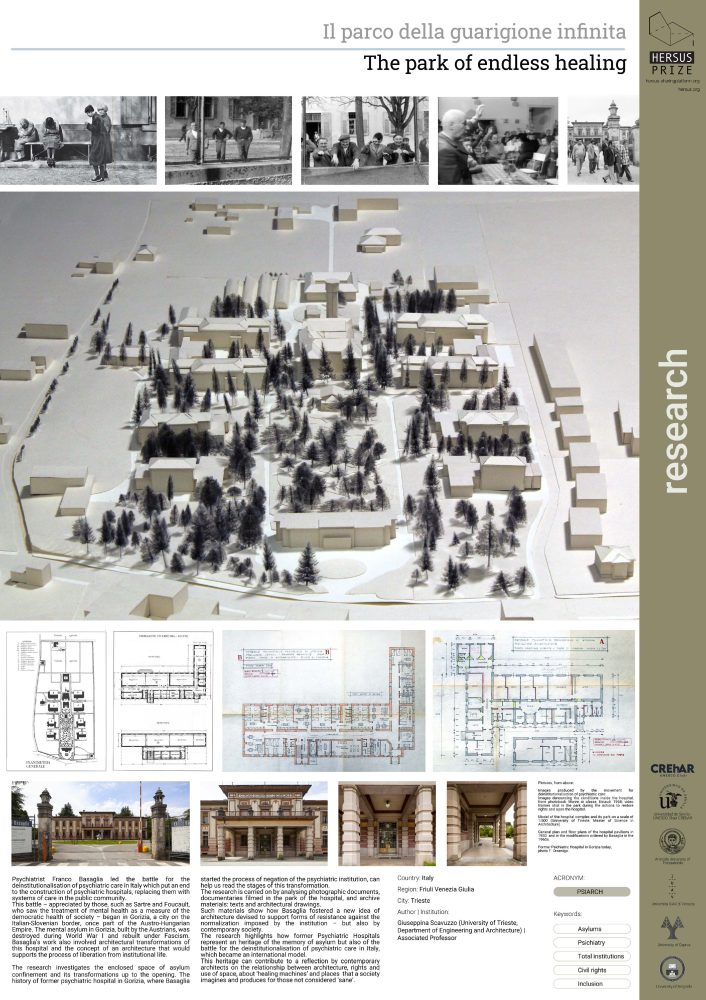The park of endless healing
Research Honorary Award / Shortlisted

Psychiatrist Franco Basaglia led the battle for the deinstutionalisation of psychiatric care in Italy which put an end to the construction of psychiatric hospitals, replacing them with systems of care in the public community.
This battle – appreciated by those such as Sartre and Foucault, who saw the treatment of mental health as a measure of the democratic health of society – began in Gorizia, a city on the Italian-Slovenian border, once part of the Austro-Hungarian Empire. The mental asylum in Gorizia, built by the Austrians, was destroyed during World War I and rebuilt under Fascism. Basaglia’s work also involved architectural transformations of this hospital and the concept of an architecture that would suppor the process of liberation from institutional life.
The research investigates the enclosed space of asylum confinement and its transformations up to the opening. The history of former psychiatric hospital in Gorizia, where Basaglia started the process of negation of the psychiatric institution, can help us read the stages of this transformation.
The research is carried on by analysing photographic documents, documentaries filmed in the park of the hospital, and archive materials: text and architectural drawings.
Such materials show how Basaglia fostered a new idea of architecture devised to support forms of resistance against the normalization imposed by the institution – but also by contemporary society.
The research highlights how former Psychiatric Hospitals represent a heritage of the memory of asylum but also of the battle por deinstitutionalisation of psychiatric care in Italy, which became an international model.
This heritage can contribute to a reflection by contemporary architects on the relationship between architecture, rights and use of space, about ‘healing machines’ and places that a society imagines and produces for those not considered ‘sane’.
Author: Giuseppina Scavuzzo